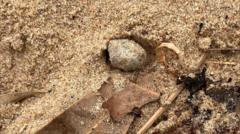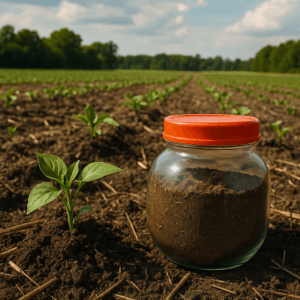Recent findings reveal dangerous substances in marble-sized balls washing ashore in Sydney, prompting urgent beach closures and a call for community vigilance.
Unraveling the Mystery of Contaminated Balls on Sydney Beaches

Unraveling the Mystery of Contaminated Balls on Sydney Beaches
Authorities investigate after beaches closed due to potentially hazardous debris containing faeces and bacteria.
In a troubling turn of events, Sydney’s Northern Beaches Council has reported that the marble-sized balls found on its shores contained hazardous materials, including saturated acids, E. coli, and faecal bacteria. This alarming discovery led to the closure of nine local beaches on January 14, including popular destinations such as Manly and Dee Why. The NSW Environment Protection Authority (EPA) has been tasked with analyzing the mysterious debris, which is critical for understanding their origin and preventing future incidents.
The recent appearance of these balls follows months after an earlier wave of black blobs was reported on Sydney's coastline. This previous episode led to temporary closures of several renowned beaches in October and necessitated extensive clean-up operations. The Northern Beaches Council reported that the latest debris has already been removed from harbour areas, although they emphasize the importance of community awareness and caution. Residents are urged not to handle the balls but rather to report any sightings to the relevant authorities.
Among the troubling contents of the new arrival are not just acids and bacteria, but also volcanic rock pumice, which adds to the mystery of their formation. Northern Beaches Mayor Sue Heins is hopeful that the EPA's forthcoming report will pinpoint the source of this contamination, allowing effective preventive measures to be established.
Previous investigations into the October blobs initially labeled them as "tar balls," though they were later identified to contain a shocking array of materials, from cooking oils and soap scum to pharmaceuticals and illicit drugs. Scientists have likened these findings to "fatbergs," often composed of grease and decaying waste, which typically accumulate within sewage systems. However, Sydney Water has reassured residents that its water treatment facilities are functioning properly and that no systemic issues have been identified.
This ongoing situation underscores the importance of environmental vigilance and regulatory coordination to safeguard public health and coastal ecosystems in Sydney.























